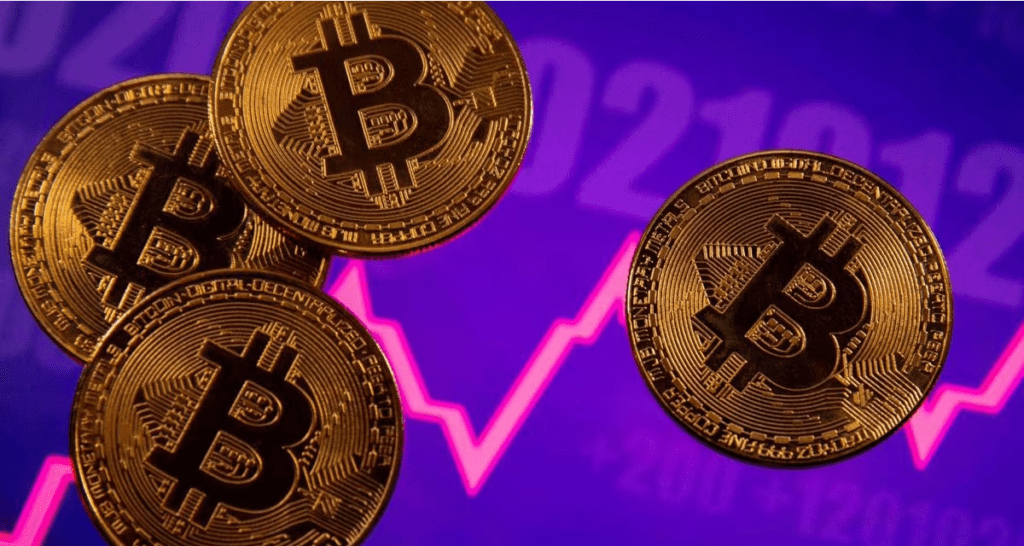In recent years, cryptocurrencies have revolutionized the world of finance, and Bitcoin has emerged as the undisputed leader in this digital revolution. As the popularity of Bitcoin continues to soar, more and more individuals are seeking ways to convert their Bitcoin holdings into traditional currencies like the Brazilian Real (BRL). In this comprehensive guide, we will explore the process of converting Bitcoin to Real, discuss the advantages and challenges associated with this conversion, and provide you with practical tips to navigate this exciting financial landscape.
Understanding Bitcoin: The Basics
Before delving into the intricacies of converting Bitcoin to Real, it is essential to understand the fundamentals of Bitcoin and its role in the digital economy. Bitcoin is a decentralized digital currency that operates on a technology called blockchain. Created by an anonymous person (or group) known as Satoshi Nakamoto, Bitcoin allows for secure, peer-to-peer transactions without the need for intermediaries such as banks or governments.
What is Bitcoin?
Bitcoin is a groundbreaking digital currency that enables secure and transparent transactions without the involvement of intermediaries. It is based on blockchain technology, a decentralized ledger that records all Bitcoin transactions.
How does Bitcoin work?
Bitcoin operates on a peer-to-peer network, where transactions are verified by network participants called miners. These miners use powerful computers to solve complex mathematical problems, and in return, they are rewarded with newly minted Bitcoins.
Is Bitcoin legal in Brazil?
Yes, Bitcoin is legal in Brazil. In 2013, the Brazilian government recognized Bitcoin as a legitimate form of payment, and since then, its popularity has been steadily increasing.
Converting Bitcoin to Real: The Process
Converting Bitcoin to Real involves several steps, but with the right knowledge and tools, it can be a straightforward process. Let’s explore the steps involved in converting your Bitcoin to Real.
Step 1: Choosing a Reliable Exchange
The first step in converting Bitcoin to Real is selecting a reputable cryptocurrency exchange. An exchange acts as a platform where you can buy, sell, and trade cryptocurrencies. It is crucial to choose an exchange that offers a secure and user-friendly interface, as well as competitive fees.
Step 2: Creating an Account
Once you have chosen an exchange, you will need to create an account. This typically involves providing your personal information, verifying your identity, and setting up two-factor authentication for added security.
Step 3: Depositing Bitcoin
After creating an account, the next step is to deposit your Bitcoin into the exchange wallet. Most exchanges provide you with a unique wallet address where you can send your Bitcoin. It is essential to double-check the wallet address to ensure the accuracy of the transaction.
Step 4: Selling Bitcoin for Real
Once your Bitcoin deposit is confirmed, you can proceed to sell your Bitcoin for Real. The exchange will display the current market price for Bitcoin, and you can choose to sell your Bitcoin at the prevailing rate or set your own price.
Step 5: Withdrawing Real
After successfully selling your Bitcoin, you can withdraw the Real to your bank account. Most exchanges offer different withdrawal options, including bank transfers. It is important to note that some exchanges may have withdrawal limits or require additional verification for larger transactions.
Advantages of Converting Bitcoin to Real
Converting Bitcoin to Real offers several advantages for cryptocurrency holders. Let’s take a closer look at some of these benefits:

1. Access to Traditional Markets
Converting Bitcoin to Real provides you with the opportunity to access traditional markets and use your funds for everyday expenses. Whether it’s paying bills, shopping, or investing in other assets, converting Bitcoin to Real expands your financial options.
2. Mitigating Volatility
Bitcoin’s price is known for its volatility, with significant price fluctuations occurring within short periods. By converting Bitcoin to Real, you can minimize your exposure to this volatility and preserve the value of your investment.
3. Leveraging Local Economy
Converting Bitcoin to Real allows you to contribute to the local economy. By spending your Real on goods and services within your community, you support businesses and foster economic growth.
4. Simplifying Tax Reporting
Converting Bitcoin to Real simplifies the process of reporting your cryptocurrency holdings for tax purposes. In many jurisdictions, cryptocurrencies are subject to taxation, and converting them to a local currency makes it easier to comply with tax regulations.
Challenges of Converting Bitcoin to Real
While converting Bitcoin to Real offers numerous advantages, it is important to be aware of the challenges that may arise during the process. Let’s explore some of the common challenges faced by individuals converting Bitcoin to Real.
1. Exchange Fees
Exchanges typically charge fees for converting Bitcoin to Real. These fees can vary significantly depending on the exchange and the volume of your transaction. It is crucial to consider these fees and factor them into your overall conversion strategy.
2. Liquidity Constraints
In some cases, liquidity constraints can affect the conversion process. If there is a limited supply of buyers for your Bitcoin, it may take longer to find a buyer willing to purchase your Bitcoin at the desired price.
3. Regulatory Compliance
Cryptocurrency regulations vary across different jurisdictions. It is important to stay informed about the legal and regulatory requirements associated with converting Bitcoin to Real in your country. Failure to comply with these regulations could result in legal consequences.
4. Security Risks
Converting Bitcoin to Real involves sharing personal information and potentially linking your bank account to a cryptocurrency exchange. It is crucial to choose a reputable exchange with robust security measures to protect your sensitive information from hackers and fraudulent activities.
Conclusion
Converting Bitcoin to Real opens up a world of opportunities for cryptocurrency holders. By understanding the process, advantages, and challenges associated with this conversion, you can navigate the cryptocurrency landscape with confidence. Remember to choose a reputable exchange, consider the advantages of converting Bitcoin to Real, and stay informed about regulatory requirements. With the right knowledge and tools, you can seamlessly convert your Bitcoin to Real and leverage the potential of both the digital and traditional financial worlds.
FAQs about Bitcoin to Real Conversion
- Can I convert Bitcoin to Real without using an exchange? While using an exchange is the most common method, there are other options available, such as peer-to-peer trading platforms and Bitcoin ATMs. However, these alternative methods may have limitations in terms of liquidity and convenience.
- How long does it take to convert Bitcoin to Real? The conversion time can vary depending on several factors, including the exchange’s processing speed and the transaction volume on the network. In general, the process can take anywhere from a few minutes to a few days.
- Are there any tax implications when converting Bitcoin to Real? Yes, in most jurisdictions, converting Bitcoin to Real is considered a taxable event. It is important to consult with a tax professional to understand the tax implications and ensure compliance with local regulations.
- Can I convert a fraction of a Bitcoin to Real? Yes, you can convert any amount of Bitcoin to Real, including fractions of a Bitcoin. Exchanges typically allow you to sell your Bitcoin in smaller denominations.
- Are there any limits on converting Bitcoin to Real? Some exchanges may have withdrawal limits or require additional verification for larger transactions. It is important to familiarize yourself with the specific limits imposed by your chosen exchange.
- What factors should I consider when choosing a cryptocurrency exchange? When selecting an exchange, consider factors such as security measures, user interface, fees, liquidity, customer support, and regulatory compliance. Researching and comparing different exchanges will help you make an informed decision.

